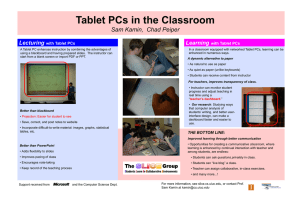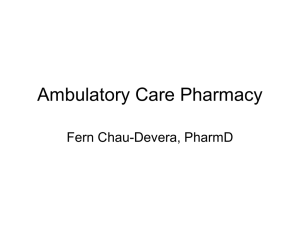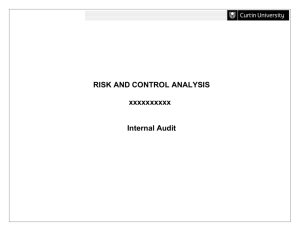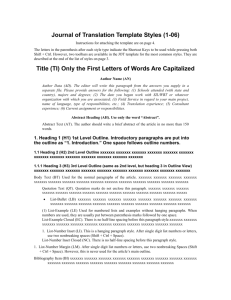Side effects study
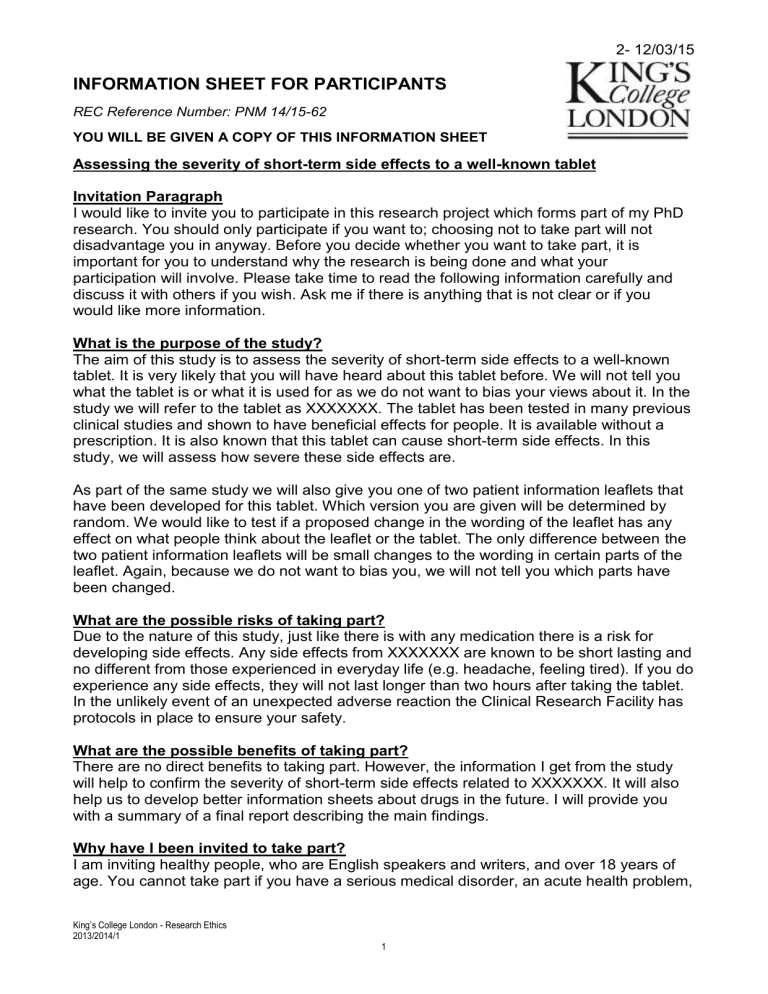
2- 12/03/15
INFORMATION SHEET FOR PARTICIPANTS
REC Reference Number: PNM 14/15-62
YOU WILL BE GIVEN A COPY OF THIS INFORMATION SHEET
Assessing the severity of short-term side effects to a well-known tablet
Invitation Paragraph
I would like to invite you to participate in this research project which forms part of my PhD research. You should only participate if you want to; choosing not to take part will not disadvantage you in anyway. Before you decide whether you want to take part, it is important for you to understand why the research is being done and what your participation will involve. Please take time to read the following information carefully and discuss it with others if you wish. Ask me if there is anything that is not clear or if you would like more information.
What is the purpose of the study?
The aim of this study is to assess the severity of short-term side effects to a well-known tablet. It is very likely that you will have heard about this tablet before. We will not tell you what the tablet is or what it is used for as we do not want to bias your views about it. In the study we will refer to the tablet as XXXXXXX. The tablet has been tested in many previous clinical studies and shown to have beneficial effects for people. It is available without a prescription. It is also known that this tablet can cause short-term side effects. In this study, we will assess how severe these side effects are.
As part of the same study we will also give you one of two patient information leaflets that have been developed for this tablet. Which version you are given will be determined by random. We would like to test if a proposed change in the wording of the leaflet has any effect on what people think about the leaflet or the tablet. The only difference between the two patient information leaflets will be small changes to the wording in certain parts of the leaflet. Again, because we do not want to bias you, we will not tell you which parts have been changed.
What are the possible risks of taking part?
Due to the nature of this study, just like there is with any medication there is a risk for developing side effects. Any side effects from XXXXXXX are known to be short lasting and no different from those experienced in everyday life (e.g. headache, feeling tired). If you do experience any side effects, they will not last longer than two hours after taking the tablet.
In the unlikely event of an unexpected adverse reaction the Clinical Research Facility has protocols in place to ensure your safety.
What are the possible benefits of taking part?
There are no direct benefits to taking part. However, the information I get from the study will help to confirm the severity of short-term side effects related to XXXXXXX. It will also help us to develop better information sheets about drugs in the future. I will provide you with a summary of a final report describing the main findings.
Why have I been invited to take part?
I am inviting healthy people, who are English speakers and writers, and over 18 years of age. You cannot take part if you have a serious medical disorder, an acute health problem,
King’s College London - Research Ethics
2013/2014/1
1
2- 12/03/15 are taking pain killers, have been drinking alcohol or if you are pregnant, think you might be pregnant, or are breast-feeding.
Do I have to take part?
Participation is voluntary. You do not have to take part. You should read this information sheet and if you have any questions you should ask the research team. You should not agree to take part in this research until you have had all your questions answered satisfactorily.
What will happen to me if I take part?
If you are interested in taking part you will be emailed a set of questions to check your eligibility. If you meet the inclusion criteria we will arrange a time for you to come to the testing room to take part. Here the researcher will go through the information sheet with you again. If you are happy to proceed you will be asked to sign the consent form. At the start of the study you will be asked some background questions about you and any symptoms you have recently experienced. After completing these questionnaires, you will then receive an information leaflet about XXXXXXX which you should read carefully. We will then ask you some questions about the patient information leaflet. You will then be asked to take one tablet of XXXXXXX with water. Once you have taken XXXXXXX you will remain in the study room for 1 hour and complete some cognitive tests so that we can monitor if you develop any short-term side effects. After this you are free to leave.
Average participation time is expected to be 1 hour 30 minutes to 2 hours.
You will find out the identity of the tablet you took at the end of data collection for the study.
Please note even if you have decided to take part, you are still free to cease your participation at any time and to have research data/information relating to you withdrawn without giving any reason up to 01/02/2017.
Location
The study will take part at th e Clinical Research Facility at King’s College Hospital.
Incentives
For taking part in this study you will receive a £40 gift voucher at completion.
Will my taking part be kept confidential?
All your data is strictly confidential and will be held securely until the research is finished.
Your participation is entirely voluntary. If you change your mind, you are free to stop your participation and to have your data withdrawn without giving any reason up to 01/02/2017.
All data for analysis will be anonymised. In reporting on the research findings, I will not reveal the names of any participants. At all times there will be no possibility of you as individuals being linked with the data.
The UK Data Protection Act 1998 will apply to all information gathered within the questionnaire booklet and held on password-locked computer files and locked cabinets within King’s College London. No data will be accessed by anyone other than the research team; and anonymity of the material will be protected by using anonymous participant ID numbers once data collection has finished. No data will be able to be linked back to any individual taking part in the study. You may withdraw your data from the project anytime up
King’s College London - Research Ethics
2013/2014/1
2
2- 12/03/15 to 01/02/2017 at which point it will become anonymised. All questionnaire booklets will be shredded after answers have been uploaded to password-locked computer files. If you ask me to withdraw your data at any time before 01/02/2017 I will remove all traces of it from the records.
How is the project being funded?
The NIHR Health Protection Research Unit is funding this research. For further information visit: epr.hpru.nihr.ac.uk
The study has been approved by the King’s College London Psychiatry, Midwifery and
Nursing Research Ethics Subcommittee.
What will happen to the results of the study?
I will produce a final report summarising the main findings, which will be sent to you. I also plan to disseminate the research findings through publication and conferences.
Who should I contact for further information?
If you have any questions or require more information about this study, please contact me using the following contact details:
Rebecca Webster
Department of Psychological Medicine
Institute of Psychiatry, Psychology and Neuroscience
King’s College London
Denmark Hill Campus
Weston Education Centre
10 Cutcombe Road
London
SE5 9RJ
Rebecca.webster@kcl.ac.uk
Tel: 020 7848 5686
What if I have further questions, or if something goes wrong?
If this study has harmed you in any way or if you wish to make a complaint about the conduct of the study you can contact King's College London using the details below for further advice and information:
Dr James Rubin
Psychological Medicine Department
Weston Education Centre
10 Cutcombe Road
London
SE5 9RJ gideon.rubin@kcl.ac.uk
Tel: 020 7848 5684
Thank you for reading this information sheet and for considering taking part in this research.
King’s College London - Research Ethics
2013/2014/1
3

